Windows Phone reaches for the bottom
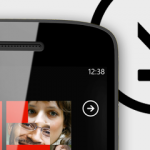
Sometimes, BetaNews readers really amaze me. Three days ago I posted "The measure of Windows Phone failure is..." based on comScore US smartphone OS market share data. To me, it was a trivial story, because I was days late writing about the numbers and posted it more as filler, being short writers (because of holidays and emergencies). More than 220 comments later, Windows Phone is hot-topic of debate among you.
Yesterday, Gartner released first-quarter global phone sales data that puts to end any real debate about Windows Phone's present: Combined smartphone OS share with Windows Mobile was 1.9 percent, down from 2.6 a year earlier but flat sequentially. The quarter-on-quarter data suggests, in context of Nokia Lumia launches, that Microsoft's mobile operating systems have finally hit bottom -- that perhaps the things won't get much worse and could finally improve.
4G LTE: 1 billion served by 2017
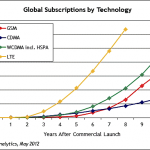
Unsurprisingly, 4G LTE is the fastest growing cellular network technology, in part for what it delivers and deployment's timing. Strategy Analytics forecasts that 4G LTE will reach 1 billion connections, or 15 percent of all, by 2017. That compares to 12 years for GSM and about 11 years for WCDMA to reach as many.
But LTE isn't gain without pain. In the United States, Verizon by far and large has the most expansive 4G network, reaching 250 metro areas and 200 million Americans compared to 38 metros and 75 million people for AT&T. Adoption still is fairly low, perhaps because phone subscribers don't understand the value. Meanwhile, Verizon will axe grandfathered unlimited plans when subscribers upgrade to LTE. There's pain for the gain.
Samsung accounts for 40% of Android smartphone sales

The figure is so important, I'm breaking it out from the long analysis posted mid-afternoon about the smartphone market consolidating around Apple and Samsung. The South Korean electronics giant is doing to Android on smartphones what Amazon does on tablets: Hugely fragment the market around a forked operating system. I warned about this three weeks ago in post "Google has lost control of Android". Now there is sales data to back it up.
Earlier today, Gartner released first quarter sales data for global handsets. Not shipments into the channel, but actual sales to end users. Market leader Samsung accounted for 40 percent of all Android smartphone sales, with no other manufacturer topping 10 percent. Sure Samsung's success lifts overall Android smartphone share -- 56.1 percent up from 36.4 percent a year earlier. But what's good for Samsung isn't necessarily in the best interests of the broader Android ecosystem.
Smartphone market consolidates around Apple and Samsung
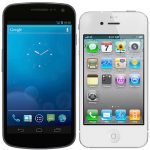
Today, Gartner put to end weeks of cellular handset debate. Apple apologists disputed Samsung's smartphone success over iPhone -- the presumption that the South Korean electronics giant benefits from greater shipments vs actual sales. Make no mistake: Samsung is the global leader overall and in the smartphone category, based on actual sales. Apologist arguments be damned.
That said, Apple's position is solid. Together, Apple and Samsung combined smartphone sales market share approaches 50 percent. Contrary to speculation that Windows Phone might appear as a third dominant mobile OS, the market is set to largely split between two vendors. As I explained three weeks ago in post, "Google has lost control of Android", Sasmung's rise isn't necessarily good for the broader ecosystem.
Frak, yeah, I'd use iPad if there was Google Chrome

What timing. I posted my iPad for sale on Craigslist over the weekend -- and two people are jockeying to get ahead of the other to buy it today. But I'm suddenly unsure about selling, after seeing a Macquarie Capital report claiming that Chrome will come to iOS as early as this quarter. Hot damn!
I rarely make decisions based on rumors, nor should you. Besides, the "timing is unclear, but it could be as soon as Q2 and is very likely to be a 2012 event", according to Macquarie Capital. "Could" be this quarter and "likely" this year stink of pure speculation -- or big back door should there be no Chrome for iOS this year. In the end, I'll likely sell the iPad, but must convey this: Chrome would be a very good reason to buy an iOS device but be akin to Google cutting off one limb to save another.
iCloud, iOS 6 and other Apple leaks are all about Facebook's IPO
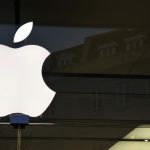
Apple execs all follow the same party line: They don't talk about forthcoming products. But somebody often does, perhaps coordinated with public relations folks or even careful disclosure from someone on Apple's board. Whom isn't so much important as someone does. As I've observed for years, leaks' timings are fairly consistent -- either to lift the share price or steal some other company's thunderous announcement. I can't help but see both in several seemingly strategic leaks, starting with today's disclosure about iOS 6 features.
The Wall Street Journal reports that iCloud will get new photo- and video-sharing capabilities, which include comments and availability outside Photo Stream -- meaning people don't have to own a fruit-logo product to view them. Apple reportedly is extending photo capabilities, while adding video-sharing as feature set. Today's leak follows another -- this one from 9to5 Mac, claiming Apple will dump Google Maps for its own service in iOS 6. Both leaks communicate that Apple is serious about social cloud services and search, and I don't believe they're coincidentally timed, given Facebook's imminent IPO.
The measure of Windows Phone's failure is...

There are many measures, but one piqued my attention last week. According to Nielsen, Windows Mobile US smartphone market share, based on install base not unit shipments, is considerably higher than its successor -- 4.1 percent versus 1.7 percent for newer Windows Phone. Interpret however you like: Windows Mobile is so good, many Americans stick with it; Windows Phone isn't doing well after two version releases and 18 months of sales.
Nielsen's numbers are for first quarter, when Android share reached 48.5 percent, effectively from zero three years ago (the OS debuted on one smartphone from one carrier in Q4 2008). The next two places go to iOS and BlacBerry, with 32 percent and 16 percent share, respectively. In second quarter 2011: Android, 39 percent; iOS, 28 percent; BlackBerry, 20 percent; Windows Mobile/Phone, 9 percent. So Microsoft's overall share measured by both operating systems is down by one-third in just three quarters.
Will you buy Samsung Galaxy S III?

Eleven days have passed since Samsung unveiled Galaxy S III, which goes on sale internationally on May 29. Galaxy S III and HTC One X are arguably the hottest Android smartphones currently available, thanks in part to quad-core HSPA+ models. But HTC One X is dual-core for LTE variants hitting these shores, subsidized from carriers; no final word yet on S3. I often ask buying questions like this one right away but waited to see what pricing would pop for Galaxy S III. Expansys-USA is taking preorders in pebble blue or white for $649.99. Pricing isn't available for 32GB or 64GB models.
I call out Expansys USA, because pricing is the best I've seen so far, and it's lower than expected. The $799.99 seen most elsewhere is more in line with unlocked Galaxy S II and Galaxy Nexus when they launched internationally. Through Amazon, Techno Trading House (a new reseller to me) lists the pebble blue model for $824, available June 2, although it's only $744 purchased direct. My simple question: Will you buy? Either unlocked for no-contract price or lower locked price from a carrier with contractual commitment -- the latter an option available in Europe before Stateside?
Yahoo ousts CEO Scott Thompson, and I ask: 'What the frak?'

So let me see if I understand rightly. It's okay for CEOs to lie, steal, cheat, take ungodly salaries and -- worse -- huge bonuses while companies flounder, commit insider trading and abuse shareholder trust in just about every way possible, but lie on the résumé and it's adios, baby? Somebody wake me from this nightmare -- or perhaps Scott Thompson, who is out as Yahoo chief executive.
Yahoo tacitly confirmed Thompson's exit today, in an announcement about Ross Levinsohn assuming position of interim CEO: "Levinsohn replaces Scott Thompson, former chief executive officer, who has left the company". That is one big middle finger. There is no explanation -- not even a fine he left for personal reasons -- or praise for his short time running Yahoo. Thompson leaves with a big stake in his heart implanted from behind.
Mom is a Google girl

I never expected my 70 year-old mother to ride the cutting edge of technology, but she's there, living in the cloud, which she embraces enthusiastically. What's that saying about not teaching old dogs new tricks? Perhaps you can.
Mom's daily tech is way out there, and you can blame or credit me for lifting her there. But she's a willing participant, happily adopting new habits, which in the end wasn't so difficult once she recognized the benefits. Perhaps your mother will, too, if you give her the chance. Mom uses Android phone (Samsung Nexus S), Chromebook (Google Cr-48) and Google TV (Logitech Revue). She lives in the cloud via these Google-powered devices and associated services.
You can have iPhone 4S, I'll take Galaxy Nexus

During the last six months, I've had the privilege to use three exceptional smartphones: iPhone 4S and two Galaxy Nexus variants -- one LTE and the other HSPA+. You can't go wrong buying either Android or iOS handset, although Galaxy Nexus supports more carrier networks here in the United States. Differences that matter are more than hardware (such as size, appearance or battery life) or software (apps and operating systems). Taking Galaxy Nexus or iPhone 4S is much more. Either is a digital lifestyle choice that many buyers won't grok before paying their hard-earned cash.
I can't emphasize this aspect strongly enough. In the days before Android and iPhone, early smartphone buyers also made digital lifestyle choices, such as BlackBerry users and persistent email or Windows Mobile buyers wanting mobile Office. But today, with differentiated, connected cloud services, digital lifestyle matters more than ever, and both handsets offer similar yet drastically different experiences. You're not just buying a phone but a way of life.
Unfair maybe, but Microsoft has the right to bar browsers from Windows RT
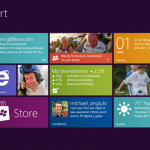
Suddenly, the new Microsoft doesn't look all that different from the old one. During court proceedings for the 1998-2001 antitrust trial, government lawyers accused Microsoft of playing favorites by providing its developers access to information not available to third parties -- thus giving Internet Explorer unfair competitive advantage over Netscape. The company's browser policy regarding Windows RT isn't just much the same, it's much more. IE gets hugely exclusive access. The question: Is it anticompetitive?
The answer isn't as simple as some people might think. For example, look at Apple. Is it anticompetitive that the company effectively bars competing browsers from iOS? It's a Safari-only platform, lest browser developers work by proxy, like Opera does. Windows has an acquired monopoly on Intel-based PCs. Apple imposes one in part, by controlling everything on its platform, which is exclusive to its own hardware. Something else to ponder: Microsoft doesn't have a monopoly on ARM as it does on x86. There's no position of market dominance to exert anticompetitive behavior, as could be defined under US antitrust law. Microsoft is within its rights to shut out Chrome, Firefox and other browsers while favoring Internet Explorer. But that doesn't make it right.
Don't be phished by tweet: 'Hey some person is saying horrible things about you'

Does reputation matter to you? Are you concerned what people say about you when you're not around? Perhaps you want to know what crap anonymous commenters post about you across the InterWebs? If the answer is "Yes" to any of these, you might be vulnerable to this tweet: "Hey some person is saying horrible things about you". Resist the temptation.
I got this one Monday and again yesterday. I started to ignore the tweet, but it came as direct message. So I clicked the shortened link, which brought me to the Twitter home page with message log-in failed. Immediately, I panicked, intuiting this likely was a phishing scam. Sure enough, Chrome revealed the fake URL and I backed off. But some other people haven't been so lucky, as Gartner analyst Mark McDonald confesses today. In reading his post, I realized it would be public service to share a bit about his experience and to warn others.
Google+ puts iOS ahead of Android

May 9 is, in a way, a watershed day for Android -- and that's not necessarily a good thing. Many developers I communicate with repeatedly say they confront the same quandary: Android or iOS first? Maybe they choose to develop for iOS, only to ask: Android or iPad next? Google is a software developer, too, and this day put its priorities in order with a stunning iOS-first update. The new iPhone app for social network Google+ is stunning, breathtaking, immersive and makes the already great experience on Ice Cream Sandwich seem outdated -- although some of the best visuals migrate to iOS.
In a way, Google sets the wrong example for its development partners by putting iOS ahead of Android. But why not? The iOS install base is larger than Android (365 million to 300 million at last reveal); countless analyst surveys show that iOS device users are more connected and engaged; and fragmentation isn't a problem since the majority of the iOS install base is on the newest version (versus about 5 percent of Androids). Google wants Plus to succeed in a big way, so improving the experience everywhere should be a priority. But iOS first, for the next big thing, is the priority.
Is Adobe Creative Cloud a good value?

It's the question I've asked myself since Adobe unveiled the subscription service in late April; it launches May 11. For me, $49.99 a month is steep. But $29.99 strongly tempts. I'm eligible for that lower pricing, and you might be, too. But to get either price, Adobe requires 12-month commitment -- and gets 50 percent still, if you cancel early. Month-to-month option is $79.99 per 30 days, or $959.88 yearly versus $599.88 for standard annual subscription pricing.
You get a lot regardless of pricing plan -- more than 20 products now and others planned (I'm waiting for Photoshop Lightroom 4.x, Adobe), offering huge savings that surely will appeal to someone. For starters: student, sole-proprietorship or small business. Among the included products and list price, if purchased (rather than subscribed): Acrobat Pro ($499), After Effects ($799), Flash Pro ($599), Illustrator ($599), Photoshop Extended ($699) and Premiere Pro ($799).
Joe's Bio
Joe Wilcox is BetaNews executive editor. His motto: Change the rules. Joe is a former CNET News staff writer, JupiterResearch senior analyst, and Ziff Davis Enterprise Microsoft Watch editor.
Ethics StatementBetaNews, your source for breaking tech news, reviews, and in-depth reporting since 1998.
© 1998-2025 BetaNews, Inc. All Rights Reserved. About Us - Privacy Policy - Cookie Policy - Sitemap.
